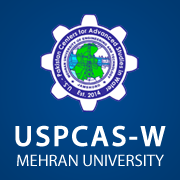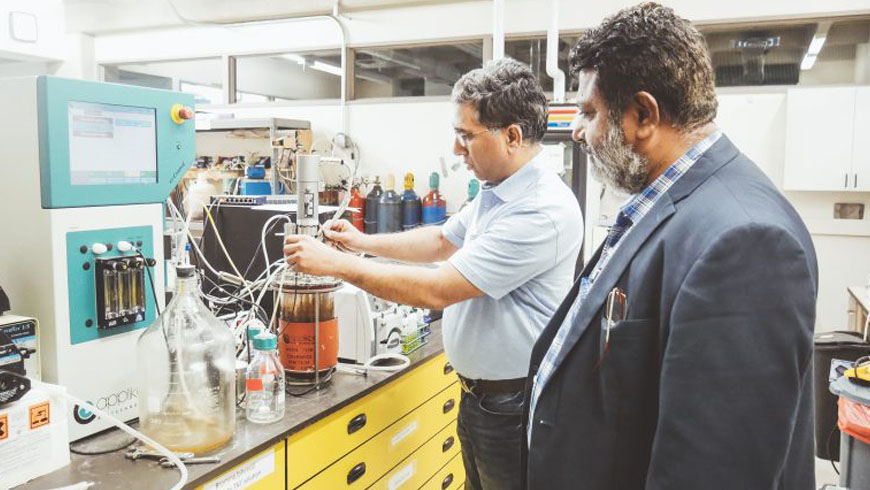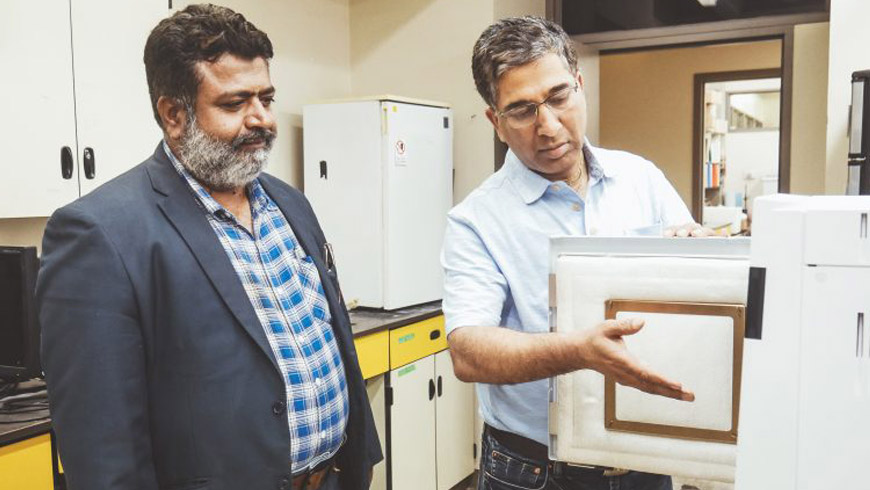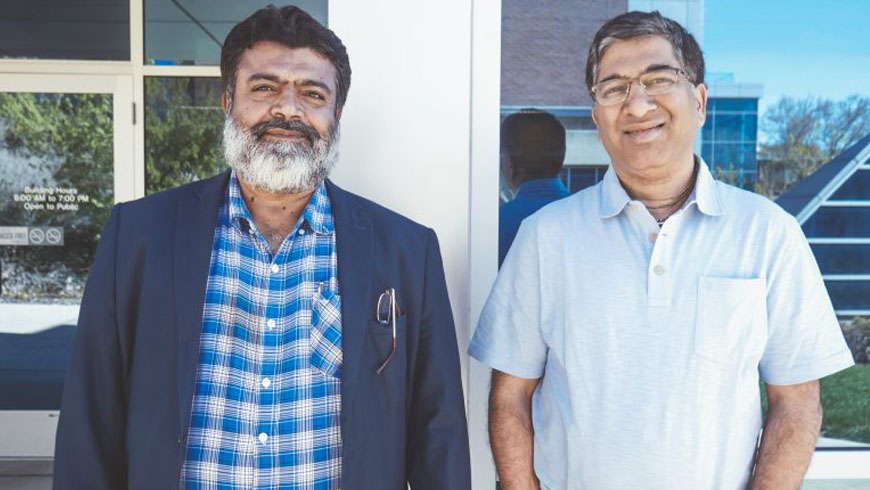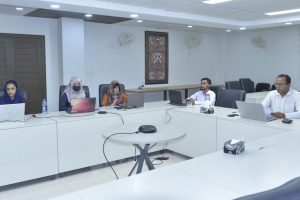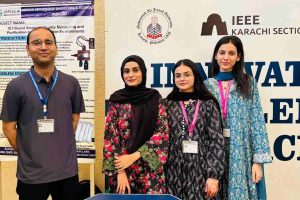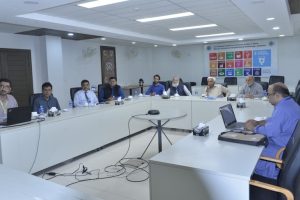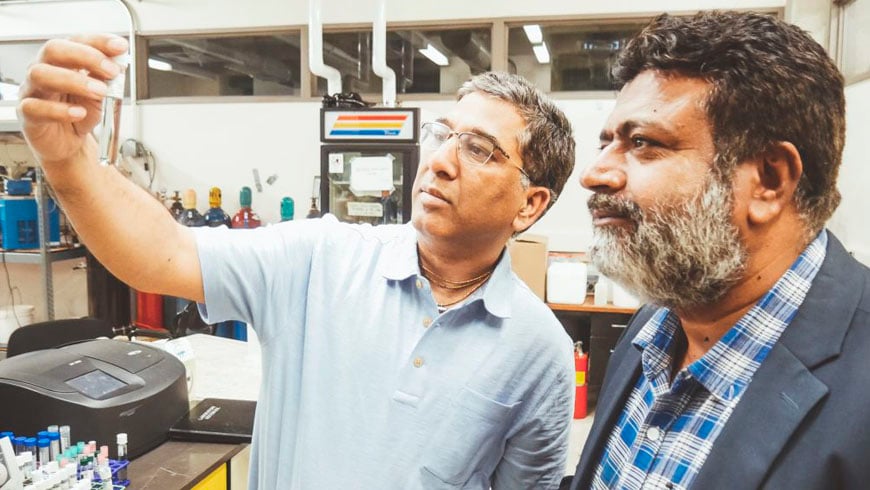
Getting to Know “Bad Bugs” in Pakistan’s Drinking Water
USPCASW Faculty Exchange Fosters Long-term Research Partnership
It was Spring of 2016 when Dr. Rasool Bux Mahar left Pakistan to spend a semester at the University of Utah. At the time, the one-year-old USAID-funded U.S.-Pakistan Center for Advanced Studies of Water was busy constructing what would become a well-equipped hub for the country’s water research at Mehran University of Engineering & Technology.
His new lab still rising from the sandy soil of Jamshoro, Mahar traveled nearly 24 hours to first meet his peer mentor, Dr. Ramesh Goel, in the foothills of Utah’s Wasatch mountains. As part of a train-the-trainers strategy, USPCASW connects faculty in Pakistan with partners in the U.S. to advance research skills, improve course content, modernize teaching methodology, and establish best practices of successful professors. Mahar was one of the first to participate in the Exchange.
Back in Pakistan, just over 10 miles from Mahar’s home university, lies Hyderabad City–a key field site for his research into antibiotic-resistant bacterial contamination. The second biggest city in Pakistan’s Sindh province, Hyderabad has wrestled with drinking water contamination and remains ground zero for an ongoing outbreak of highly drug-resistant Typhoid that has sickened over 5,200 people since 2016. A 2018 study, to which Mahar contributed, found that 70 percent of samples taken from Hyderabad’s Water and Sanitation Agency’s system and 87 percent of the river, canal, and groundwater samples are unfit for drinking, cooking and washing purposes due to the presence of antibiotic-resistant bacteria.
The city is not alone in its plight. The emergence of bacterial antibiotic resistance is a global problem and one of the grand challenges of the 21st century. Pakistan is no exception from this curse and, country-wide, drinking water infrastructure suffers greatly from the presence of ARBs. Human, animal and industrial waste, plus agricultural runoff combine all too often with drinking water into a sometimes-fatal cocktail.
One of the challenges researchers face is not only detecting, but properly identifying and quantifying the presence of “bad bugs.” Which is why Mahar needed to build his skills halfway around the world; the specialized training he obtained at the University of Utah will bolster his ability to address this important research frontier.
He describes his exchange experience and working with Goel as “a big shift in my career.” Their work together embraced molecular biology as a complement to Mahar’s background as an environmental engineer. It was an interdisciplinary dance familiar to Goel, but “this was a new field for me,” noted Mahar. “Albeit a challenge, it was quite exciting and interesting to push my limits and learn new things.”
Goel, a Civil and Environmental Engineering professor, had experience in applying molecular diagnostic techniques to environmental engineering problems. That informed a new research approach for Mahar, and the challenges in Pakistan provided ample opportunity for field study. “After working in Dr. Goel’s lab, I committed within myself that on return I would establish a very similar lab in Pakistan,” said Mahar.
With the assistance of USAID funding, he set to work acquiring the necessary instrumentation to better define not only which pathogens are present in the water supply and the biofilms that line distribution systems, but their specific resistance factors. While public health experts agree that prevention is critical in controlling the spread of ARBs, Mahar noted that “without adequately knowing the main problem, preventative measures are hard to take.” He hopes his lab will open the door to a deeper understanding of the factors that are sickening so many so that government response can be tailored accordingly.
“Our laboratory is now fully equipped with state-of-the-art facilities and students are being trained to use the resources to provide solutions and services that address water issues in Pakistan,” said Mahar. His lab is leading partnerships with local industries to better manage wastewater and providing quality assessment and monitoring of surface drinking water in Hyderabad and Karachi.
Goel and Mahar have sustained the research partnership first established by the USPCASW program. The two are currently mid-stream on a quarter million dollar joint research project titled “Capacity building at Mehran University of Engineering and Technology to address Drinking Water Issues in Pakistan.” They aim to train the next generation of water professionals to address ARBs in addition to their independent research in antibiotic-resistant bacteria in Pakistan. Goel notes “the success has been truly inspiring with research publications already emerging.”

